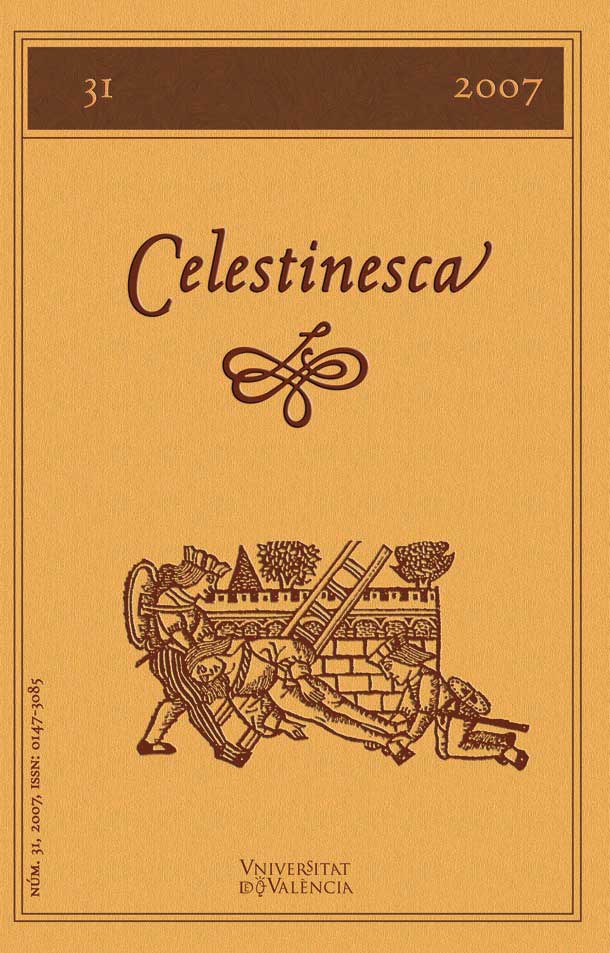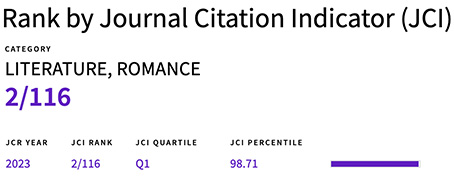Language and Authority in the Celestina . Institutions, Incongruence and Shifting Symbolic Power
DOI:
https://doi.org/10.7203/Celestinesca.31.20071Keywords:
Language, Authority, Institutions, Symbolic Power, Bourdieu Abstract
Abstract
George Shipley (1968) writes that the power inherent in the word operates transitively in the world spoken of. Bound up in this statement are three syllogisms that I shall examine in this article: that there exist different worlds in the Celestina other than the one spoken of; that language operates in Rojas's work within and according to these fictional worlds; and that language has contradictory values and linguistic power can thereby be continually transmuted. Making use of theory propounded by Pierre Bourdieu, which acknowledges the legitimacy of linguistic authority according to the social constructions in which it is embedded, I shall explore the shift in verbal mastery of Melibea and Celestina, arguing that the intermingling of fictional worlds —of courtly love and prostitution— affects irrevocably their linguistic authority and that language in the Celestina destabilizes as much as it can empower.
 Downloads
Downloads
Downloads
Published
How to Cite
-
Abstract301
-
PDF (Español)191
Issue
Section
License
![]() Celestinesca is committed to the dissemination of knowledge, that is why access to its contents is free and is ruled by a Creative Commons Attribution-NonCommercial-NoDerivatives 4.0 license.
Celestinesca is committed to the dissemination of knowledge, that is why access to its contents is free and is ruled by a Creative Commons Attribution-NonCommercial-NoDerivatives 4.0 license.
Authors retain the rights to their works. Therefore, they can disseminate them and deposit them in the repository, institutional or not, that they wish. However, they are kindly requested to do so by providing the full bibliographic reference and the corresponding DOI.
Celestinesca does not charge authors for submitting, processing, reviewing or publishing their articles.





